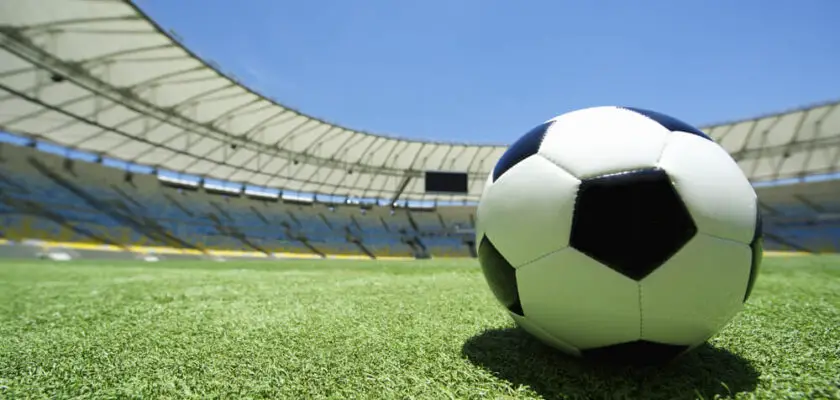The history of Brazilian football is full of achievements, idols, and unforgettable moments. But it is also marked by episodes of corruption, scandals, and investigations that have shaken the credibility of its institutions. Among these episodes, the CBF-Nike CPI, established in the early 2000s, stands out as the first parliamentary inquiry commission (CPI) into Brazilian football.
But, after all, what was the CBF-Nike CPI that took place more than 25 years ago?
What were the results and punishments?
If you want to remember or learn about this episode in the history of Brazilian football, you’ve come to the right place.
Keep reading to understand what the CBF-Nike CPI was, what it investigated, the controversies of the time, its context, developments, and results.
Click here to open your Betano account and start betting right now with a bonus of up to R$500
Payments via PIX (Fast withdrawals and deposits)
Live games (Free streaming of over 100 sports)… Super Odds (The best odds in the market)
Bet responsibly!
The context of the CPI CBF Nike: the contract
In 1995, the Brazilian Football Confederation (CBF), presided over by Ricardo Teixeira, signed a multi-million dollar contract with Nike to supply sports equipment to the Brazilian National Team.
The agreement, valued at around US$400 million over ten years, stipulated that US$160 million would go to the CBF, while the rest would be allocated to uniform production, travel, sports marketing, and an US$8 million compensation to Umbro, the previous supplier.
The contract was celebrated as a milestone in the modernization and professionalization of Brazilian football, but soon doubts arose about its transparency and the real benefits for the CBF.
The entity, which claimed financial difficulties, began to show annual losses after signing the agreement, raising suspicions about resource management and Nike’s influence on the National Team’s decisions.
Also read: TOP 10 | Biggest controversies in football history
The installation of the CBF-Nike CPI
The trigger for the creation of the Parliamentary Inquiry Commission (CPI) was the 1998 World Cup in France. Brazil’s defeat to France in the final, combined with rumors of external interference in the team’s lineup and in the scheduling of friendlies, increased the pressure for investigations.
Parliamentarians, the press, and fans began to question the relationship between the CBF and Nike, especially after allegations that the company had veto power over players and direct influence on the National Team’s agenda.
With popular and political pressure, in 2000 the Chamber of Deputies officially installed the CBF/Nike CPI, under the presidency of Aldo Rebelo (PCdoB-SP) and rapporteur Silvio Torres (PSDB-SP).
The objective was precisely to investigate possible irregularities in the contract between the CBF and Nike, as well as to examine the entity’s financial management and possible illicit practices within the confederation.
Also read: 9 biggest Neymar controversies in football (on and off the field)
In practice, the CBF-Nike CPI focused mainly on:
- Analysis of the contract between CBF and Nike: There were suspicions of abusive clauses, lack of transparency, and disproportionate benefits to the American company, which became the target of the CPI and investigations that would support the report (if it existed).
- CBF’s financial management: It was important to resolve contradictions in the statements, donations, and loans made by the entity, even while claiming financial difficulties.
- Donations to political campaigns: The CPI found that the CBF made donations to candidates for deputy and senator, a practice prohibited by law for non-profit entities at the time. Among the recipients were well-known names such as deputy Eurico Miranda (PPB-RJ) and Darcísio Perondi (PMDB-RS), both members of the CPI itself. The value of the donations exceeded R$650,000, raising suspicions of buying political support.
- Financial applications abroad: Among the issues investigated were CBF’s resource movements in international accounts, including investments in gold.
- Nike’s influence on the National Team: There were numerous allegations that Nike had the power to call up as many as eight players and decide on friendlies for the Brazilian National Team. 😱
The CBF-Nike CPI heard 125 witnesses in 237 hours of meetings, including then CBF president Ricardo Teixeira and striker Ronaldo, who was still playing for the National Team.
However, the so-called “soccer caucus” in Congress worked hard to protect officials and prevent the investigations from advancing.
The political and legal lobbying around the CBF was identified as one of the main obstacles to the success of the CPI, which ended up going nowhere.
Also read: Brazil vs Argentina brawl: Raphinha’s statements and 5 more historic controversies of the classic
The CBF-Nike CPI process: conduct and frustrating result
The CBF-Nike CPI operated between 2000 and 2001, holding dozens of public sessions and hearings, analyzing documents, contracts, bank statements, and hearing from officials, businessmen, politicians, and athletes.
The final report, prepared by deputy Silvio Torres, detailed the irregularities found, in addition to:
- suspicions of money laundering;
- currency evasion;
- active and passive corruption;
- reckless management of CBF resources.
As a result, the rapporteur called for the indictment of Ricardo Teixeira and 33 others, including officials, businessmen, and those involved in the scandal.
Despite the volume of information and evidence presented, the CBF-Nike CPI ended without the approval of the final report.
In summary, the work of the CPI, although it exposed several “problems” in the relationship between the CBF and Nike, did not result in concrete punishments for the main parties involved.
The contract between CBF and Nike was reviewed, but the entity continued to maintain commercial relations with the company. The CBF, in turn, did not implement structural reforms in its management, and the integrity of the entity was once again questioned in later scandals, such as the one happening now, in 2025, with a series of scandals involving the CFB, exorbitant spending, removal of journalists, and more.
For the most recent cases, you can check everything in the special report: “6 scandals at CBF in 2025: dossier with a summary of the entity’s controversies so far.”
In 2025, CBF may be a defendant in another CPI
The CBF may once again become a defendant in a CPI in 2025 due to the succession of scandals that have come to light this year, ranging from questionable million-dollar expenses to allegations of abuse of power and interference in media outlets.
Recent reports, such as from Piauí magazine, revealed that the entity financed expenses for people with no direct connection to football during the World Cup, spent large amounts on lawyers and legal settlements, and was accused of installing hidden cameras to monitor employees at its headquarters.
Additionally, the removal of ESPN journalists after criticism of CBF management raised suspicions of attempts to curtail press freedom, further aggravating the institution’s credibility crisis.
In this scenario, deputy Coronel Meira (PL-PE) filed a request to open a CPI to investigate possible irregularities in the entity’s management, especially after the allegations.
The request highlights that, despite being a private entity, the CBF performs a function of public interest and moves resources with major economic and social impact.
In other words, even though the CBF-Nike CPI was a milestone in the history of Brazilian football, the challenge remains: to turn allegations into real change and ensure that Brazilian football is a source of pride not only on the field, but also off it.
Click here to open your Betano account and start betting right now with a bonus of up to R$500
Payments via PIX (Fast withdrawals and deposits)
Live games (Free streaming of over 100 sports)
Super Odds (The best odds in the market)
Bet responsibly!



